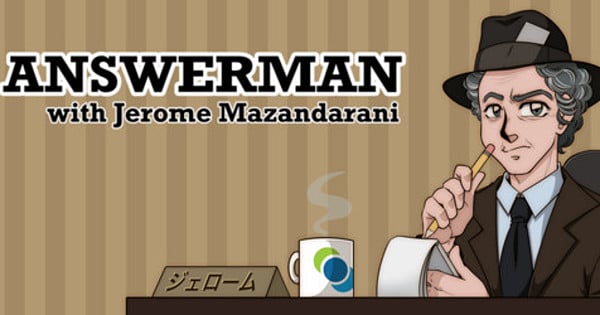Defamation Versus Free Speech – Answerman

Legal curious questions:
A comic artist is suing a woman for defamation based on her social media post. Isn’t that violating freedom of speech?
Freedom of speech does not mean freedom from consequences, especially in terms of slander and hate speech. If you want to know, slander is an action that damages someone’s good reputation. Also known as slander or slander. The law of defamation varies from country to region. In the United States, it is much more difficult to successfully prosecute defamation cases due to the First Amendment. In countries such as Japan and the United Kingdom, it is easier to prosecute defamation in civil or criminal cases.
Let’s go from Review what happened. October 11, 2024 Yahoo! Japan News Stories Reported lawsuits between creators King’s ranking,,,,, searchand a 30-year-old woman from Kawa Prefecture, Japan.
In July 2022, the woman posted on X (formerly twitter), calling tōka “pedophile and right-wing”. She reportedly served as the post because she believed King’s ranking Similar to another comic she likes, she “want to vent my anger”.
My understanding is that Toka-san or someone on his behalf complained to the authorities about the tweet. The Narashino Police Department forwarded the case documents to the prosecutor for suspected defamation. Now the world holds its breath to find out the results, leading to a massive suffocation event, as the wheel of justice is very slow.
It is impossible to predict an exact timeline, but based on Japan’s criminal justice system, this is a typical pattern: Once the investigation is turned over, the prosecutor decides whether to formally prosecute the woman. This process can take weeks to months. Japan’s legal system is well-known for its high conviction rate, partly because of prosecutors’ reluctance to put the case to trial unless they have confidence in victory.
If the prosecutor decides to prosecute, the case will be taken to court. The first hearing is usually scheduled one to two months after the prosecution. In the immediate case where the defendant admitted the allegation, the trial may end quickly, sometimes at one or two hearings. However, if the defendant denies the charge or the case is complicated, the trial can last for months, with hearings about once a month. It’s almost time to get covered by A’s anime Blu-ray skateboard Production Committee.
so! Regarding “freedom of speech” related to Japanese law: In Japan, slander may be a crime or civil matter. According to Japanese criminal law, the public allegation facts hold that whether the statements are true or false, they may be punished for imprisonment or fines. A key defense proves that the statement is true and related to the public interest, which is related to the public interest.
In Japan, the legal system’s interpretation of “public welfare” (Kōkyōnofukushi) is crucial to understanding the limitations of freedom of speech. This concept found in Articles 12 and 13 of the Japanese Constitution states that fundamental rights must be used for “public welfare.” This leads to the ability of the court to balance individual rights, such as freedom of speech, from the protection of others’ rights and society as a whole.
Japan’s Criminal Law (Article 230-2) provides an important defense for allegations of defamation. If the alleged facts are related to the public interest, only in the public interest or prove to be true, they will not be punished for defamation. This creates a public interest defense, but the defendant bears the burden of proving his statements.
The Japanese legal system does not consider the “public welfare” clause as a blank check on government speech restrictions. Instead, the Supreme Court has developed a case-by-case balance approach that takes into account phonetic contexts, including public interest values, artistic values or potential potentials, to directly undermine public order and other rights.
In the United States, the First Amendment protects freedom of speech and press. While providing strong protection, this is not absolute. The concept of “public welfare” here is constructed through “public concern” or “public interests”.
In the United States, when courts evaluate libel cases, they first determine whether voice is related to “public concern.” This broad category includes issues of political debate, public policy and community interests in general. The more public affairs the statement is involved, the more First Amendment protection it receives.
The American legal system recognizes that strong public debate on freedom of public concern is crucial to a fully functional democracy. To facilitate this debate, the law provides an important “breathing space” for false or inaccurate statements, especially with regard to public figures. The focus is not much on stating the truth, but more on whether the speaker acts responsibly. Therefore, unlike the “public welfare” clause that Japan constitutionally restricts rights, the U.S. standard of “public concern” is a legal principle developed by the courts that enhances the protection of free speech in defamation cases, which makes it harder for public figures to sue defamation and harder for lawsuits against anyone in order to bring statements of public interest.
Considering whether her statements are a factual claim that damages the social status of the comic artist, the case of the woman may be assessed under these Japanese laws. In this special case, the defendant may be charged with criminal defamation and the court will balance its right to express and Tōka’s reputational rights.
Do you have the answer questions?
We would love to answer your questions, especially those that are encouraged to be inspired by recent news and headlines. But first read:
● Check the file. Over the years, we have answered thousands of questions and probably have answered your questions!
●We can’t tell you if the show will get another season, nor can we help you get in touch with any producer, artist, creator, actor or licensor.
●Submit your questions only once.
●We only ask questions by email. (Tweet issues have been ignored!)
●Please keep your question within the length of the paragraph.
●Email address is [email protected].
Thank you!




